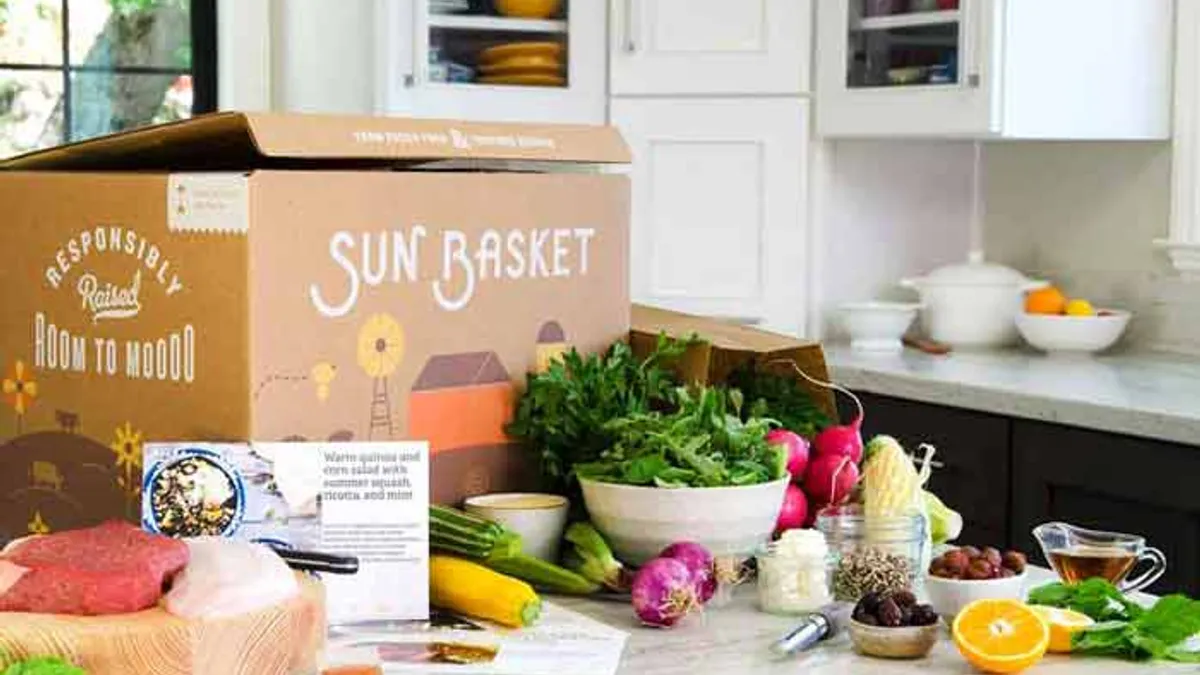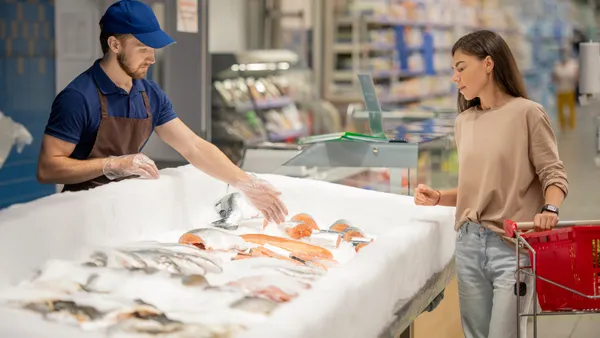Dive Brief:
- Sun Basket introduced a new line of salad kits that get a meal on the table in less than five minutes, according to a news release. The new offerings address customer demand for reduced preparation time and healthy lunch options, the company noted.
- The salads are available in four organic varieties: spicy southwestern, protein crunch, rainbow Asian and kale Caesar. Prices start at $10.99.
- Home Chef and Purple Carrot have also recently expanded their meal-kit options. Home Chef now offers an “on-demand” line which take 15 minutes to prepare, while Purple Carrot has added breakfast and lunch options that also cut prep time down to five minutes.
Dive Insight:
Companies like Sun Basket are trying to expand their customer base by addressing consumer demand for fast and fresh meals. As kit companies struggle to keep customer spending ahead of their marketing costs, appealing to as many shoppers as possible is becoming key to survival.
In addition to Home Chef and Purple Carrot, Gobble’s express kits are designed to be ready in 15 minutes and come with all the prep work, like chopping and peeling, completed. Some companies like Territory Foods and Tovala offer ready-to-heat meals which cut out all the preparation time. Even Chick-fil-A has stepped into the fast meal kit game with kits that can be picked up in stores in the Atlanta area.
The crowded meal kit industry has seen dozens of upstart competitors come and go, and some high-profile players have struggled lately. Chef’d went out of business last summer before getting snapped up by True Food Innovations. Blue Apron has labored to boost its company value amid operational woes and a tepid response from consumers. The company's stock price recently dipped below $1.
According to Packaged Facts, the U.S. meal kit market is poised to slow in the years ahead. The industry reported sales of $2.6 billion in 2017 and is expected to total $3.1 billion in sales for 2018. However, the firm estimates that meal kit growth will increase over the next several years only to decline to the low single-digits by 2023.
This expected growth stems from the theory that consumers like the convenience meal kits provide. There’s no recipe research or shopping trips to worry about and more people are cooking at home. There are downsides, however. The meal options are often limited, they can be expensive and they often take a long time to prepare. Particularly as supermarkets make shopping easier and more compelling, meal kits are feeling pressure to raise the bar on convenience.
Meal kit companies are also teaming up with other businesses or have been acquired in an attempt to reach consumers in new places. Plated meal kits are popping up on Albertsons' store shelves nationwide. Home Chef is seeing a broad rollout at Kroger stores. HelloFresh is in Giant and Stop & Shop stores and Blue Apron meal kits can be ordered through Jet.com. And it’s not just grocery stores — some meal kit brands are partnering with food delivery services like GrubHub.
Retention is one of the main trouble spots for subscription services. According to recent data from Second Measure, Blue Apron retains just 13% of its customers after 12 months using the service while HelloFresh retains 11%. As the industry tries different approaches to stay competitive, giving consumers more choices — from faster meals to diverse pricing models to retail partnerships — will be key to selling more meals.












